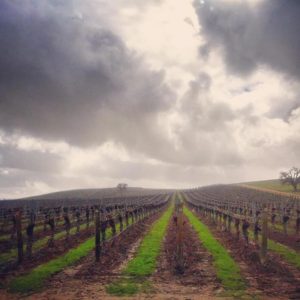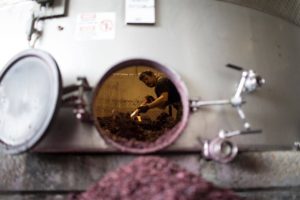Vintners in Paso Robles are concentrating on the smallest of details in their vineyards, even as the quantity of red Bordeaux varieties planted in the AVA reaches new heights. Claiming more than 50% of the Paso Robles AVA’s 40,000 acres, red Bordeaux varietals from the region have proven their merit on the world stage, but with the spotlight now on the area, winemakers are challenged to continue to reach new heights. Recognizing that quality often rests in the details, the winemakers of the Paso Robles CAB (Cabernet and Bordeaux) Collective (PRCC) continue to raise the bar as they seek perfection in the elusive 100-point wine.

In the wine industry, change takes time. Wineries like Treana have been planting continuously over the last 32 years and are being rewarded with high quality fruit production from the oldest vines. In putting an emphasis on the caliber of their wines, they’ve begun to isolate sections within each block and identifying those that are producing the best fruit. As Treana looks to the future, the vineyards have become a focus with planting of new rootstock varieties, installation of weather stations, and implementing fruit shade cloth on the vines. That attention to detail continues into the winery where open-top fermentation tanks are used to run experimental trials that inform the winemaker’s decisions.
“Paso Robles provides ideal growing conditions for our Cabernet Sauvignon with its warm days, cool nights, coastal influences and diverse soils. It’s up to us, as the winemakers, to bring out the best of the fruit that nature has given us,” said Austin Hope, president of Treana. “We keep innovating, trying new things in the vineyards and in the winery that we think will continue to elevate the caliber of wines we’re producing.”
Other PRCC member wineries have decided to remove some acreage in an effort to prioritize quality over quantity. One such winery is Niner Wine Estates, which has also increased its Cabernet Sauvignon diversity with the addition of clones 31, 33, 47, 169, 338 and 412 at the renowned Heart Hill Vineyard. The new

rootstocks being added are resistant to draught and nematodes, as well as being limestone tolerant. The winery is also employing new techniques in processing with longer fermentations and extended macerations showing promise in improving strength and length. The complexity of the wines is benefitting from a delay of sulphur dioxide additions to a year after the harvest.
The PRCC is committed to elevating the profile of Cabernet Sauvignon and red Bordeaux varietals produced in Paso Robles. Members have the opportunity to learn from one another at several events throughout the year, including a winemakers-only Vintners Tech Symposium and the Varietal Spotlight Tastings. This collaborative mindset has played a crucial role in raising awareness for the quality of wines being produced in the region.
